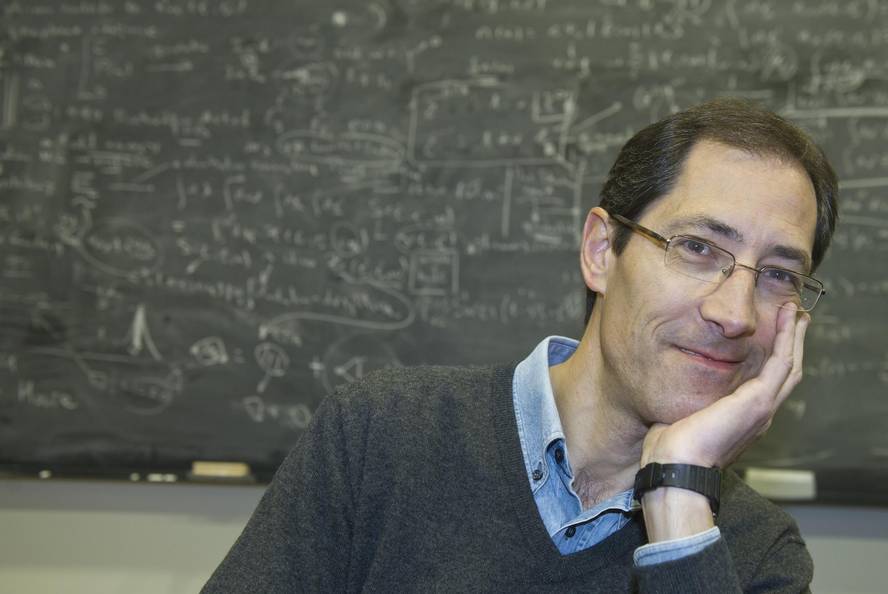“I would like to see how to avoid the pain of being able to organize atoms”
My little gods were Niels Bohr and Richard Feynman. Bohr, god of quantum mechanics, and Feynman was a very special, original and different person. I was very lucky. And I finished my studies in the 1980s, which was very important. At that time we knew the content of the conference "There is plenty of room at the bottom, an invitation to enter a new field of physics" by Feynman in 1959. The things that Feynman said at that conference about the visualization and manipulation of atoms were then unthinkable. He said: "The principles of physics do not speak against the possibility of maneuvering things atom by atom. It's something that happens: but in practice, it has not been done because we are too big". That is, the atomic manipulation of things is not against the principles of physics, but we cannot do it because we are too big.
But in 1981, when he was attending university studies in physics, Binnig and Rohrer built the microscope of tunnels, following the principles of quantum mechanics, and that is why they took the 1986 Nobel Prize. That same year I started doing the thesis under the direction of Pedro Etxenike. And in that I started to study the microscope of tunnels. In fact, it was the one who opened the doors of nanotechnology, which allowed to see, touch and move the atoms for the first time.
According to Feynman, we are too big to see atoms with our eyes and touch them with our hands, but Binnig and Rohrer invented a nanoneedle (blind stick) that would be part of the microscope of tunnels to see and touch atoms. This was conceptually very important and had a great influence on the research work of my time.
I don't think this happens before my career ends; perhaps before I die, if I reach a hundred years... I want to witness the power of nanomedicine.
The truth is that today we have the ability to organize atoms and molecules to our liking. Through this use and from this fact, new medical techniques are being developed, with applications in diagnosis and new therapies. But for me it would be especially important to see that this allows avoiding pain from diseases.
Why should we suffer painful effects of diseases? We will always have diseases, but why suffer so much in vain? Will you be able to organize atoms and molecules to avoid this pain? I don't think we see it, but we are on the right track.
“This entry is #Scientific Culture I. Participate in the festival”







